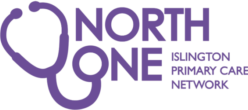Your mental health matters. We are committed to providing the best possible care and support to our patients experiencing mental health challenges. Whether you’re dealing with stress, anxiety, depression, or other mental health concerns, your GP is here to help guide you through the process of finding the right care.
Mental health refers to our emotional, psychological, and social well-being. It affects how we think, feel, and act, and how we handle stress, relate to others, and make choices. Mental health problems can affect anyone, at any age, and it’s important to talk about mental health openly and without stigma.
Common Mental Health Conditions
- Anxiety: Feelings of unease, worry, or fear that can be mild or severe.
- Depression: Persistent low mood, loss of interest, and feelings of hopelessness.
- Stress: Emotional or physical strain caused by life pressures.
- Obsessive-Compulsive Disorder (OCD): Repetitive, unwanted thoughts (obsessions) and/or actions (compulsions).
- Bipolar Disorder: Extreme mood swings from emotional highs (mania) to lows (depression).
- Eating Disorders: Conditions like anorexia, bulimia, or binge eating that affect your eating habits.
- Psychosis: Conditions that affect your thinking, such as schizophrenia, where you may have difficulties distinguishing reality.
Signs You May Need Support
If you are experiencing any of the following, it may be a good idea to seek support from your GP:
- Feeling down, hopeless, or overwhelmed for an extended period.
- Difficulty managing day-to-day tasks.
- Excessive worry, fear, or panic attacks.
- Difficulty sleeping or changes in appetite.
- Withdrawing from social activities or relationships.
- Thoughts of self-harm or suicide.
How Your GP Can Help
If you’re experiencing mental health issues, your GP is the first point of contact. They can offer a variety of support options, including:
- Assessing Your Needs: Your GP will listen to your concerns, assess your mental health, and discuss possible treatments.
- Providing Treatment: This may include:
- Talking therapies like Cognitive Behavioral Therapy (CBT), counseling, or psychotherapy.
- Medication to help manage symptoms (such as antidepressants or anti-anxiety medication).
- Referrals to Specialists: If necessary, your GP may refer you to a mental health specialist such as a psychologist, psychiatrist, or mental health nurse for further assessment and care.
- Crisis Support: If you’re in crisis, your GP can refer you to emergency services or mental health crisis teams who can provide urgent support.
Useful Resources
- NHS Mental Health Support: For information on services available in your area, visit NHS Mental Health Services
- Samaritans: If you’re feeling overwhelmed, Samaritans offers a 24/7 helpline. Call 116 123 or visit Samaritans.
- Mind: A charity that provides support for mental health issues. Visit Mind for more resources and advice.
- Shout: A text-based support service for anyone in crisis. Text 85258 to reach out for help.
- Kooth: A free, online mental health support service for children and young people aged 11 to 25 in the UK. Whether through direct counselling, peer support, or self-help tools, it provides valuable services to young people who are looking for help with their mental well-being. For more information or to sign up, you can visit Kooth’s official website: Kooth.
- Camden and Islington Talking Therapies is a NHS service offering free, confidential mental health support for people aged 16 and over in Camden and Islington. It provides a range of therapies, including Cognitive Behavioral Therapy (CBT), to help manage common mental health issues. The service offers support through online sessions, phone consultations, and face-to-face appointments, ensuring flexibility and accessibility. Referrals can be made by a GP or directly through their website.
Remember: Your mental health is just as important as your physical health. Seeking help is the first step toward feeling better.

